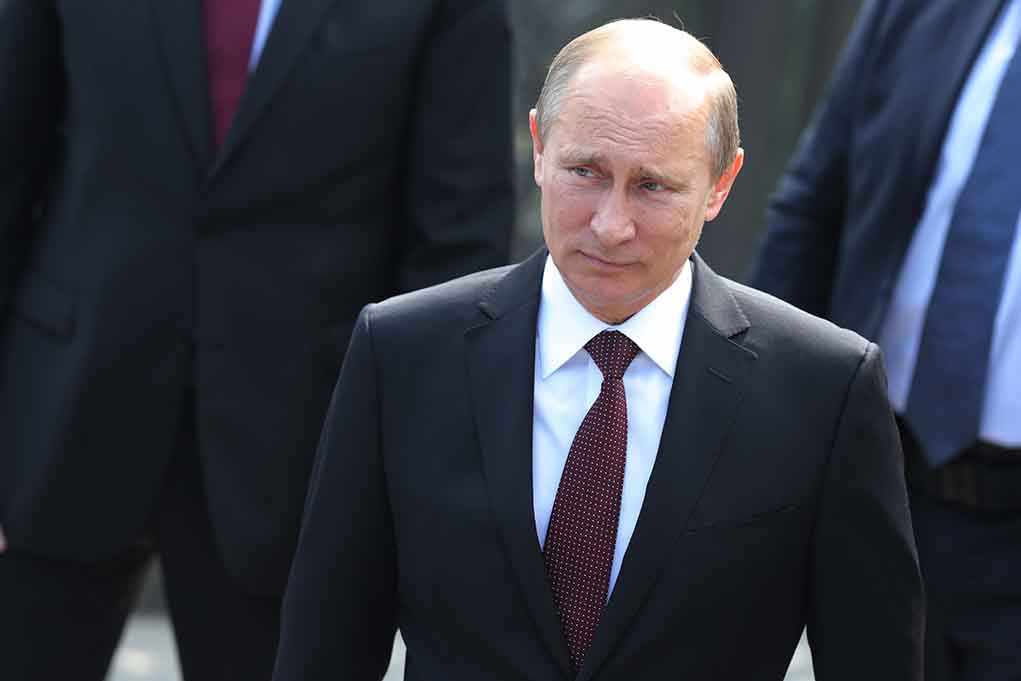
Putin’s proposal to trade peace for Ukraine’s eastern territories tests the limits of U.S. diplomacy and European unity.
Story Overview
- Putin offers to halt the war for territorial concessions in Ukraine.
- Trump and Putin to meet in Alaska to discuss the deal.
- Ukraine and Europe firmly reject the proposal.
- U.S. faces pressure to maintain ally unity.
Putin’s Proposal: A Strategic Maneuver?
Russian President Vladimir Putin has proposed that Russia will cease hostilities in Ukraine if the United States mediates a deal for Kyiv to surrender Donetsk, Luhansk, and Crimea. This offer, presented to U.S. envoy Wikoff on August 6, 2025, is scheduled for further discussion at a summit between President Donald Trump and Putin in Alaska on August 15. While this proposal is seen by some as a potential pathway to peace, Ukraine and its European allies have rejected it outright, presenting an alternative plan to the U.S.
The U.S. has maintained a central role in the negotiations, leveraging sanctions and diplomatic pressure. However, the firm rejection from Ukraine and the European Union underscores the complexities facing any resolution that involves territorial concessions. President Trump, while open to initial discussions with Putin, has assured that Ukraine will be included in subsequent negotiations, highlighting the importance of a unified front against Russian aggression.
Historical Context and Stakeholders
Russia’s occupation of eastern Ukraine and Crimea dates back to 2014, with the conflict escalating into a full-scale invasion in 2022. The regions of Donetsk and Luhansk have been hotspots due to Russian-backed separatists. As the war drags on, the battlefield remains at a stalemate, with neither side achieving a decisive victory. The U.S. has threatened additional sanctions if Russia does not engage in meaningful negotiations, reflecting its role as both a mediator and enforcer of international norms.
Key stakeholders include President Putin, who seeks territorial gains and relief from sanctions; President Trump, navigating U.S. interests and global stability; and President Zelenskyy of Ukraine, who adamantly opposes territorial concessions. The European Union, providing substantial support to Ukraine, insists on being part of the negotiation process to maintain regional stability and uphold sovereignty.
Analysis and Expert Opinions
Experts from the Institute for the Study of War suggest Putin’s proposal is a tactic to delay sanctions and shift responsibility for the ongoing conflict onto Ukraine. Analysts warn that accepting such territorial concessions could set a dangerous precedent, potentially emboldening future acts of aggression by Russia or other states. The Wall Street Journal reports that European and Ukrainian officials view the offer as destabilizing, reinforcing the need for a united response that includes Ukraine’s interests.
Amid these complex dynamics, the upcoming summit in Alaska remains a pivotal moment. While the prospects for a breakthrough appear slim, the discussions could redefine the geopolitical landscape, testing alliances and the resolve of leaders committed to upholding international law and order.
Sources:
Russian Offensive Campaign Assessment, August 8, 2025
Ukraine, Europe Reject Putin’s Ceasefire Proposal, Present Counterproposal to U.S.
Polish Media Reveals Alleged Secret Trump-Putin Peace Proposal




